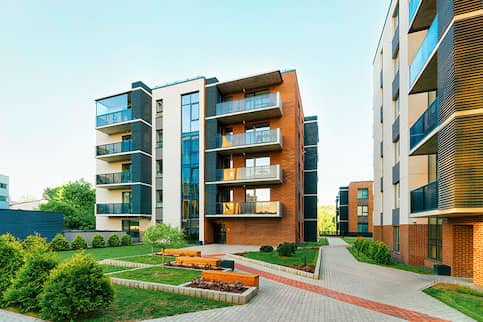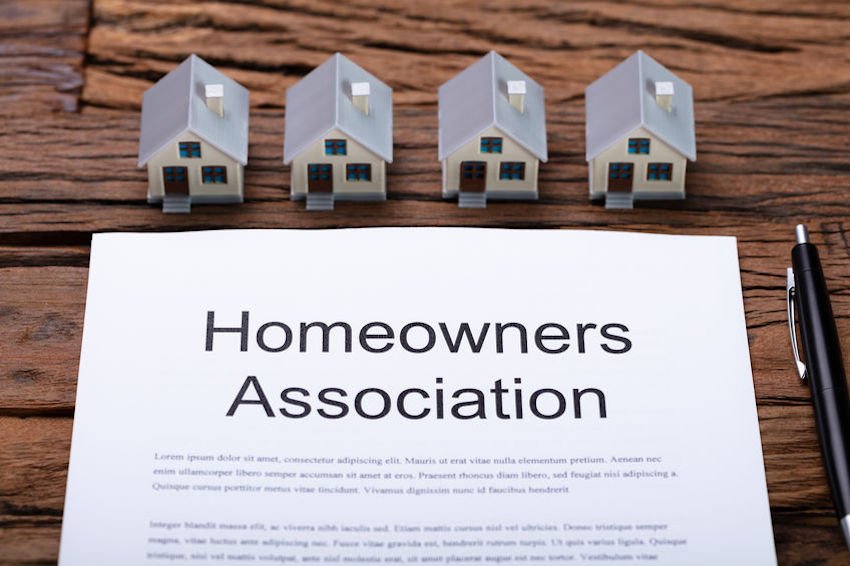Explore the Future of HOA Condo Advancement
Explore the Future of HOA Condo Advancement
Blog Article
The Duty of an HOA in Establishing and Enforcing Community Standards for Citizens
The duty of a Homeowners Association (HOA) in applying and developing area standards is fundamental to preserving a organized and natural household setting. By developing clear regulations that regulate elements such as property upkeep and community conduct, the HOA not just sets requirements for residents however also cultivates a feeling of belonging and accountability.
Understanding Property Owners Associations
Homeowners organizations (HOAs) function as governing bodies for residential neighborhoods, playing a crucial duty in preserving property worths and cultivating a sense of community. Commonly formed by designers, HOAs are composed of homeowners within a designated area that choose a board to look after the organization's activities. The key features of an HOA include enforcing area guidelines, handling usual areas, and organizing neighborhood events.
HOAs run under a set of controling records, consisting of problems, commitments, and restrictions (CC&R s), which outline the rights and duties of property owners. These policies aim to guarantee that properties are preserved to a specific standard, thus securing the aesthetic allure and general value of the community. In addition, HOAs frequently accumulate dues from homeowners to money maintenance, landscaping, and other social work.
The existence of an HOA can significantly affect the living experience within an area (hoa condo). While some locals appreciate the structured setting and facilities offered, others may find certain laws limiting. Stabilizing the interests of all house owners is crucial for an HOA to work properly, making sure that it offers its intended purpose of boosting community living while appreciating individual house owner legal rights
Establishing Area Guidelines

To begin, an HOA needs to conduct studies or hold conferences that allow citizens to articulate their concerns and tips. This participatory process promotes a sense of possession and enhances compliance. Next off, the HOA board need to analyze the responses to identify common motifs and concerns that necessitate official addition in the standards.
It is also important to ensure that the standards are clear, concise, and conveniently understood. Uncertainties can cause disputes and misconceptions, weakening the purpose of the standards. In addition, the guidelines should be thorough, covering different aspects of area living, consisting of residential or commercial property maintenance, sound levels, and use typical locations.
Enforcement of Policies
Effective enforcement of neighborhood rules is critical for preserving order and making certain that all locals stick to the developed standards. An HOA should implement a structured strategy to impose these laws, which typically entails a mix of monitoring, interaction, and fines for non-compliance.
First, regular assessments and area patrols can help this post determine offenses, ensuring that regulations are regularly used throughout the neighborhood. This proactive tracking permits the HOA to address issues prior to they intensify, fostering a sense of liability amongst locals.
2nd, clear communication is crucial. Residents ought to be notified of the regulations and the treatments for reporting violations. An open line of communication encourages citizens to voice problems and look for clarification on guidelines, which can enhance compliance.
Finally, when infractions happen, the HOA needs to implement effects as detailed in the controling papers. This might include cautioning letters, fines, or, in severe situations, lawful action. It is crucial that penalties are used fairly and regularly to maintain depend on within the neighborhood. By successfully implementing rules, an HOA can grow an unified living setting that mirrors the cumulative worths of its homeowners.
Advantages of HOA Rules
Various advantages occur from the application of HOA policies, which offer to boost the high quality of life within a community. One key benefit is the maintenance of residential property worths. By implementing standards for aesthetics and maintenance, HOAs ensure that homes and usual areas stay eye-catching, cultivating a preferable living setting that can cause increased building values gradually.
Additionally, HOA guidelines advertise uniformity and uniformity within the area. This comprehensibility in style and upkeep aids to create a feeling of belonging amongst locals, adding to community pride and a favorable ambience. Additionally, developed standards facilitate conflict resolution amongst neighbors by offering clear assumptions and web methods for behavior, thus decreasing disputes.
An additional substantial advantage is the stipulation of common amenities and services. Many HOAs handle neighborhood facilities such as pools, parks, and clubhouses, which boost entertainment possibilities for citizens. These features not just enhance the lifestyle however likewise encourage social interaction.
Ultimately, the regulations stated by an HOA grow an efficient, harmonious community, ensuring that citizens delight in a high criterion of living while promoting a helpful environment for all property owners.
Typical Difficulties Dealt With by HOAs
In the middle of the advantages that property owners organizations (HOAs) can supply, they likewise encounter a selection of challenges that can prevent their effectiveness. Several property owners might not participate in conferences or area tasks, leading to a disconnect in between the HOA board and residents.
One more challenge is the enforcement of policies and laws. Disagreements can occur when homeowners feel that enforcement is irregular or prejudiced, potentially causing problems within the community. Furthermore, HOAs typically encounter financial restrictions, which can restrict their ability to maintain typical locations or fund area projects. This can produce frustration amongst locals who anticipate high criteria of maintenance.
Moreover, navigating lawful complexities can be discouraging for HOAs. Altering demographics and evolving neighborhood needs require HOAs to adjust their guidelines, often satisfying resistance from enduring residents who are accustomed to typical norms.
Verdict

By creating clear guidelines that regulate facets such as residential or commercial more info here property maintenance and neighborhood conduct, the HOA not just sets standards for citizens yet also fosters a sense of belonging and liability.Homeowners organizations (HOAs) serve as governing bodies for property areas, playing an essential function in keeping property values and fostering a sense of neighborhood. Lots of house owners might not get involved in conferences or area tasks, leading to a disconnect in between the HOA board and residents. Transforming demographics and evolving community needs require HOAs to adapt their guidelines, often meeting resistance from long-standing residents who are accustomed to traditional standards. Via the advancement of clear laws and consistent enforcement, HOAs advertise property upkeep, area satisfaction, and trust fund amongst homeowners.
Report this page